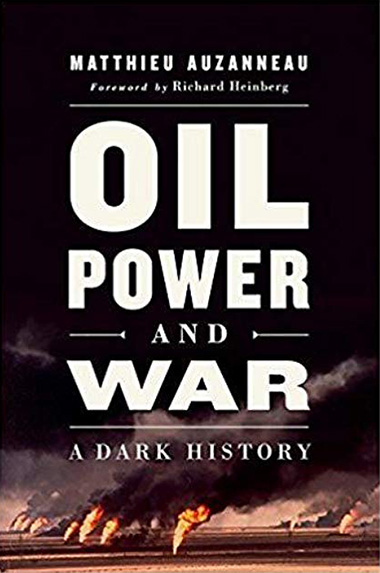In Oil, Power, and War, French journalist Matthieu Auzanneau presents a comprehensive, provocative history of humankind’s relationship with oil. His account takes us from the first references to oil in ancient literature and scripture, to its current status as the lifeblood of the industrial economy, to its inevitable future demise as a usable energy source for our society. The book was first published in France in 2015 as Or noir (meaning “black gold”). This new edition is a nicely rendered English translation that extends the original narrative to the present.
The book uses the four seasons of the year as a metaphor for the life cycle of the modern oil era. The first season, spring, was preceded by a centuries-long “germination” in which all the factors that led to our current, utter reliance on fossil fuel slowly fell into place. For most of this time humankind’s use of oil remained small-scale, but it launched into an ever-upward spiral with the development of the first commercial oil wells during the late 1850s. Spring began in 1945, when America’s post-World War II economic boom propelled world oil consumption to meteoric new heights. Summer saw America lose her status as the world’s oil production powerhouse and become dependent on overseas oil. Today we’re 20 years into autumn, a season defined by the peaking of global oil extraction. We’re woefully unprepared for the winter we face, in which oil will begin its irreversible decline.

The learning curve involved in humankind’s exploitation of oil was especially precipitous in the beginning. Auzanneau describes how those who produced the first oilfields did so at what today would be considered a reckless pace, not yet understanding that extracting the oil too quickly damages the reservoir, greatly reducing how much oil can ultimately be recovered.
…click on the above link to read the rest of the article…